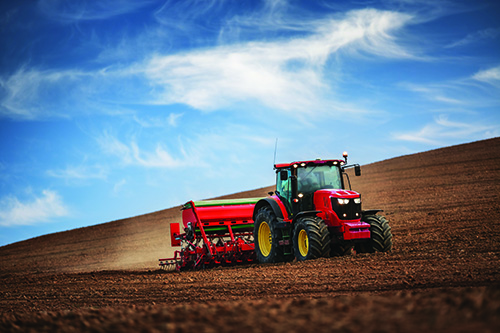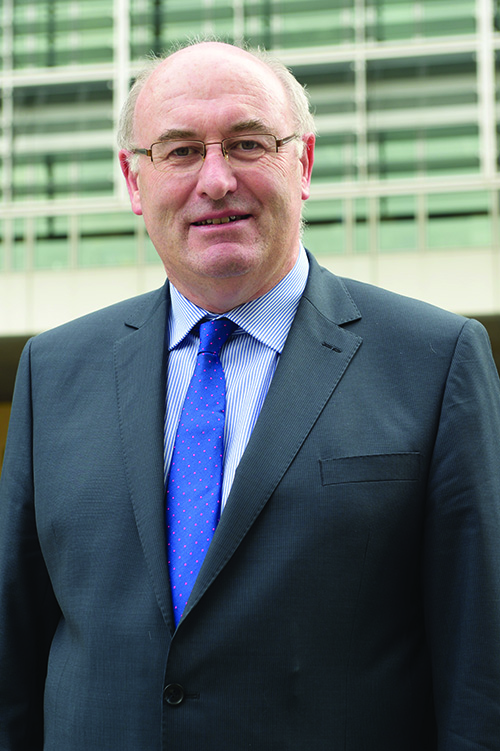Where now for CAP reform?

A mid-term review of the Common Agriculture Policy is looking less and less likely.
EU agriculture commissioner Phil Hogan has given strong hints over recent weeks that he will not undertake a mid-term review of the Common Agricultural Policy (CAP). Rather he wants to ensure that what we have at the moment – by way of support measures and the accompanying regulations – is made fit for purpose at farm level. Speaking recently at Green Week in Berlin, Hogan acknowledged that there are many challenges facing EU agriculture at the present time.
“It is a fact that rural depopulation is accelerating in many regions of Europe: it is also a fact that the EU farming sector is declining in size while increasing in age,” he said
“These are trends which must be halted or reversed if we are serious about the task ahead. The broad challenges we face have both a rural and urban dimension. Food security is the bottom line, but focusing only on food production is too narrow.
“Rural areas supply countless public goods to urban areas: ecosystem services, fresh air, recreational opportunities, waste management, raw material, energy and climate solutions. When it comes to climate change, for example, rural areas will provide carbon sinks and more sustainable food production systems, while urban areas must curb emissions, increase energy efficiencies and tackle food waste. But this will not function to an optimal degree unless it is done in synergy.”
A January Eurostat survey showed that 90 per cent of EU citizens believe agriculture and rural areas are very important for the future. Hogan believes there is a constant need to remind EU tax payers that rural areas are only as sustainable as the communities which live in them and nurture them.
He told his audience in Berlin that rural communities must provide a broader spectrum of job and lifestyle choices to younger citizens if they are to stay and raise their families there.
“We are also faced with a faulty food supply chain, where the primary producer all too often receives only a fraction of the price paid by the urban consumer for high-quality produce. We must be brave enough to acknowledge that this is a form of economic inequality which cannot endure.
“We must also recall that farmers and indeed many rural businesses have difficulty accessing the investment and credit they need to fulfil these tasks.”
Looking ahead, Hogan believes that Europe must do more to repair its faulty food supply chain. He has recently launched an Agrimarkets Taskforce, which will examine this issue with the aim of identifying clear actions to improve the position of farmers.
 “On the other side of the coin, consumers are more sophisticated and knowledgeable these days. They demand the highest standards of quality and safety in their food and drink,” he told the audience at Green Week.
“On the other side of the coin, consumers are more sophisticated and knowledgeable these days. They demand the highest standards of quality and safety in their food and drink,” he told the audience at Green Week.
“All of this places an onus on farmers and agribusinesses to produce the best quality food in the best possible way. But this is a virtuous cycle which should be enhanced. I believe we are doing a sterling job in Europe of producing high-quality food and drink in a safe and sustainable fashion. But we can do more. And more and more people understand that farming plays a central role in climate strategies.
“Agriculture must, therefore, become more efficient and more intelligent. We need to produce more, using fewer resources. This will require huge evolutionary changes in the way we produce food and drink, and I am pleased to say that EU policies are already channelling significant funds towards making this a reality.
“For example, we are investing billions in research and innovation in the agri-food sector. However, we must remember that rural areas are about much more than farming. If we want to keep young people in rural areas, to farm the land, to create new businesses, to rejuvenate rural communities, we need to invest heavily in supporting holistic rural development.
“EU Rural Development Funds are currently investing in rural broadband connectivity, they are stimulating rural business creation, they are incentivising sustainable landscape management and tree planting.”
While accepting that something has to be done to re-balance the agri food chain in Europe, increasing numbers of agricultural commentators in Ireland believe that Phil Hogan must push for a more fundamental review of the CAP.
A case in point is Fianna Fáil agriculture spokesman Éamon Ó Cuív. “The EU is not doing enough to support production agriculture,” he said. “A strong case can be made to introduce coupled payments for both tillage and livestock farmers. Where cattle and sheep producers are concerned, the payments can be linked to stocking rates per hectare.
“There is enough information now available to national governments, making this approach a feasible option. But for this to happen will require a formal mid-term review of the CAP.”
Meanwhile, the European Commission has been encouraged to endorse a CAP reform policy which would reward those farmers achieving higher levels of productivity. The organisation driving this agenda is CEMA, the body representing the interests of agricultural machinery manufacturers in Europe.
Its secretary general Dr. Ulrich Adams is quick to point out that improved productivity must not be confused with increased farm output.
“Our focus is on getting farmers to produce more from less, when it comes to managing their land and their crops,” he said.
“The technology is already available to allow farmers maintain crop yields and quality but with a reduced reliance on inputs. It is the implementation of precision farming technologies that is making this work.
“Our proposal to Brussels is centred on the availability of a top-up area payment for those producers meeting the envisaged productivity targets.”
In Northern Ireland the year just past will go down as one of the most traumatic on record. The impact of the international crash in dairy prices has left a lasting impact on the province’s milk producers.
Ulster Farmers’ Union president Ian Marshall believes that volatility has become the new normal for farming.
“We will, most likely, continue with our efforts to negotiate changes and find solutions, locally, in London and in Brussels,” he said.
“However it would be wrong to suggest there is a magic bullet or a pool of new money that could end these serious difficulties. We will continue pressing for measures to ease the cash flow crisis on many farms across Northern Ireland, but realistically we must begin looking to the future.
“We have to find solutions to the damage caused by volatility. If we do not do so, we are condemning ourselves to live permanently with a boom and bust situation. This will not be easily or quickly achieved, but it is the road we must begin to travel as thoughts begin to turn to the possible mid-term review of the CAP in 2017, and to the next big reform after 2020.”





